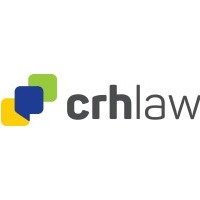Best Nursing Home Abuse Lawyers in Brisbane
Share your needs with us, get contacted by law firms.
Free. Takes 2 min.
List of the best lawyers in Brisbane, Australia
About Nursing Home Abuse Law in Brisbane, Australia
Nursing home abuse in Brisbane, Australia, refers to any form of mistreatment that occurs within residential aged care facilities, impacting the elderly residents’ well-being, safety, and dignity. This abuse can be physical, emotional, financial, or neglectful. In Brisbane, like the rest of Australia, nursing homes are regulated by both federal and state laws designed to protect residents from harm and ensure they receive proper care. The regulatory framework includes the Aged Care Act 1997 and the Quality of Care Principles 2014, which set standards for care providers to adhere to.
Why You May Need a Lawyer
Legal assistance may be needed in various situations involving nursing home abuse, including:
- Identifying signs of abuse or neglect and understanding the legal implications.
- Reporting suspected abuse to the relevant authorities and navigating the legal processes involved.
- Pursuing compensation for harm suffered due to abuse or neglect.
- Understanding residents' rights and holding nursing homes accountable for failures in care.
- Assisting in mediations or litigation if a legal claim is pursued.
Local Laws Overview
The legal landscape surrounding nursing home abuse in Brisbane is shaped by both federal and state regulations:
- Aged Care Act 1997: This Federal law regulates standards of care and protects the rights of those in aged care facilities.
- Quality of Care Principles 2014: Accompanying legislation that outlines the standards of care that aged care facilities must meet.
- Queensland Civil and Administrative Tribunal (QCAT): Handles disputes related to aged care, such as issues pertaining to guardianship and administration.
- Workplace Health and Safety Laws: Ensures that aged care facilities maintain a safe environment for both residents and staff.
Frequently Asked Questions
What constitutes nursing home abuse?
Nursing home abuse encompasses physical, emotional, financial abuse, and neglect. It includes any action or inaction that causes harm or distress to an elderly resident.
What are common signs of nursing home abuse?
Warning signs include unexplained injuries, sudden changes in behavior, poor hygiene, unexplained weight loss, and withdrawal from usual activities.
How can I report suspected abuse in a nursing home?
You can report suspected abuse to the Aged Care Quality and Safety Commission, which investigates complaints against aged care facilities.
Are there penalties for nursing homes that fail to meet care standards?
Yes, nursing homes that don't meet mandated care standards may face sanctions, fines, or even closure by regulatory bodies.
Can I sue a nursing home for negligence?
If a nursing home fails in its duty of care, leading to harm, you may be able to sue for negligence and seek compensation for damages.
Who can file a complaint about nursing home abuse?
Residents, family members, or any concerned party can file a complaint if they suspect abuse or neglect in a nursing home.
Is there a time limit for making a legal claim in nursing home abuse cases?
Yes, legal actions have time limits (statute of limitations), which vary, so it is important to seek legal advice as soon as possible.
Do I need proof to make a complaint?
While having evidence can strengthen a complaint, it is not mandatory to have physical proof to report suspected abuse or neglect.
What role do lawyers play in nursing home abuse cases?
Lawyers provide legal advice, help gather evidence, represent clients in legal proceedings, and advocate for fair compensation.
What should be the first step if I suspect abuse?
The first step is to ensure the resident's immediate safety and then report the suspected abuse to the appropriate authorities.
Additional Resources
For further assistance, the following resources can be beneficial:
- Aged Care Quality and Safety Commission: Offers guidelines and a platform to address grievances related to nursing home care.
- Elder Abuse Prevention Unit (Queensland): Provides support, advice, and resources for preventing elder abuse.
- Queensland Law Society: Can provide referrals to solicitors specializing in elder law and nursing home abuse.
- Office of the Public Guardian (Queensland): Protects the rights of vulnerable adults in aged care settings.
Next Steps
If you or someone you know needs legal assistance in addressing nursing home abuse, consider the following next steps:
- Gather any evidence or documentation related to the suspected abuse or neglect.
- Contact a solicitor experienced in elder law and nursing home abuse for legal advice.
- Report the abuse to the Aged Care Quality and Safety Commission or local authorities.
- Consult with a lawyer to explore options for seeking compensation or taking further legal action.
Taking prompt action is crucial to ensure the safety and well-being of nursing home residents and to hold providers accountable for their care standards.
Lawzana helps you find the best lawyers and law firms in Brisbane through a curated and pre-screened list of qualified legal professionals. Our platform offers rankings and detailed profiles of attorneys and law firms, allowing you to compare based on practice areas, including Nursing Home Abuse, experience, and client feedback.
Each profile includes a description of the firm's areas of practice, client reviews, team members and partners, year of establishment, spoken languages, office locations, contact information, social media presence, and any published articles or resources. Most firms on our platform speak English and are experienced in both local and international legal matters.
Get a quote from top-rated law firms in Brisbane, Australia — quickly, securely, and without unnecessary hassle.
Disclaimer:
The information provided on this page is for general informational purposes only and does not constitute legal advice. While we strive to ensure the accuracy and relevance of the content, legal information may change over time, and interpretations of the law can vary. You should always consult with a qualified legal professional for advice specific to your situation.
We disclaim all liability for actions taken or not taken based on the content of this page. If you believe any information is incorrect or outdated, please contact us, and we will review and update it where appropriate.










